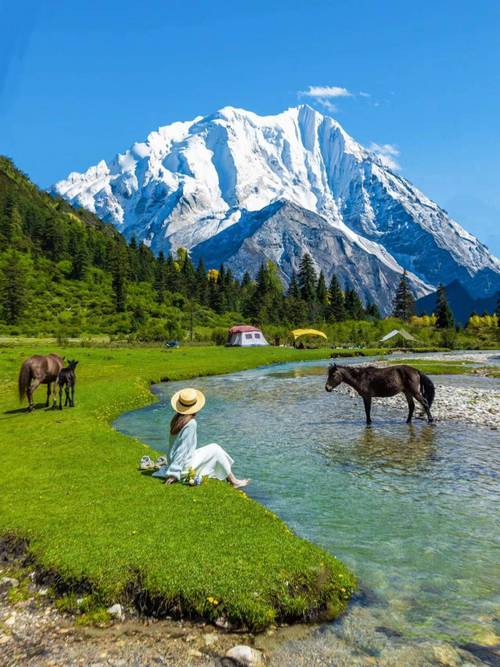Global Travel Information
Elbe River Soccer Tournaments: Play for the Trophy
The Elbe Unity Cup: More Than a Game, A Trophy Forged in Community
The Elbe River, a serpentine ribbon of history and commerce, flows from the rugged highlands of the Czech Republic through the cultural heart of Germany before meeting the North Sea. For centuries, it has been a lifeline, a border, and a muse. But on certain weekends, from the vineyards of Dresden to the bustling port of Hamburg, its banks transform. The air, once filled only with the murmur of water and wind, now crackles with the thud of a ball, the shouts of players, and the cheers of spectators. This is the season of the Elbe River Soccer Tournaments, a series of grassroots competitions where the true prize isn’t merely a piece of silverware, but the very spirit of community, a trophy earned through collective passion and played for in the shadow of a great European artery.
The concept is elegantly simple yet profound. Unlike the monolithic, corporate-sponsored mega-events of modern football, the Elbe tournaments are a decentralized, organic network. Each town and village along the river’s course hosts its own event, often timed sequentially, creating a summer-long festival of football that migrates with the current. The "Elbe Unity Cup" is less a single trophy and more a symbolic title, a shared goal that connects these disparate communities. The format varies—sometimes it’s classic eleven-a-side on full-sized pitches overlooking the water, other times it’s frantic seven-a-side on makeshift fields in riverside parks, or even gritty small-sided tournaments on urban futsal courts. The constant is the backdrop: the flowing water of the Elbe, a silent, unwavering witness to the drama unfolding on its shores.
The players are the soul of these tournaments. You won’t find multi-millionaire superstars here. Instead, the pitches are graced by local heroes: the baker whose hands are as skilled at kneading dough as they are at threading a through-ball; the university student whose thesis stress is momentarily forgotten in the pursuit of a sliding tackle; the veteran in his fifties, whose footballing IQ far surpasses the stamina in his legs, marshaling a team of younger colleagues from the local factory. These are teams with names like "FC Elbflorenz Dresden," "Hafen Jungs Hamburg," or "Magdeburg Mavericks," representing not just a group of friends, but a neighborhood, a profession, or a local pub. The football is passionate, often technically impressive, but always fiercely competitive yet bound by an unspoken code of respect. A hard foul is immediately followed by a hand up. A contentious referee decision is debated, but ultimately accepted.
This is where the tournament’s motto, "Play for the Trophy," reveals its deeper meaning. The physical trophy itself—perhaps a polished, locally crafted cup or a traditional Willkomm (a German welcoming tankard)—is a coveted object. Lifting it aloft, mud-streaked and breathless, is a moment of pure, unadulterated glory that will be recounted in the local Kneipe (pub) for years to come. However, the "trophy" is also metaphorical. It represents pride, bragging rights, and the intangible reward of being part of something larger than oneself. For the winning team, it’s the trophy of unity and achievement. For everyone involved, it’s the trophy of participation, of belonging to the unique tapestry of the Elbe community.
The role of the spectators is equally vital. They don’t just watch; they participate. Grandparents set up folding chairs, families spread out picnics on the grass, and children chase their own balls on the periphery, the stars of the next generation. The sidelines are a chorus of encouragement, tactical advice (both solicited and not), and good-natured ribbing. The aroma of grilled Bratwurst and fried onions from a makeshift stand mingles with the scent of freshly cut grass, creating an unmistakable atmosphere of festivity. This is not a passive audience; it is an integral part of the event, a community coming together to celebrate itself. The riverbank becomes a town square, a agora where social bonds are strengthened over a shared love for the game.

Furthermore, the Elbe River itself is more than a scenic backdrop; it is a central character and a unifying force. Historically, rivers have been connectors of people and cultures. The Elbe, which once divided East and West Germany during the Cold War, now stands as a powerful symbol of reconciliation and unity. The tournaments consciously tap into this symbolism. It’s not uncommon for teams from former East and West to face off, but any historical tension is left on the banks. The rivalry is purely sporting, and the shared post-match beer by the river serves as a constant reminder of what connects them—the water, the game, and a common identity—far outweighing what once divided them. The river’s journey mirrors the tournament’s spirit: it flows through diverse landscapes, gathering strength from countless tributaries, yet remains one singular, powerful entity.
In an age where elite football is often criticized for becoming disconnected from its roots, a sterile business played in sanitized arenas, the Elbe River Soccer Tournaments are a breath of fresh air. They are a vibrant reminder of the game’s primal power to build community, foster local pride, and create lasting memories. There are no television cameras, no VAR delays, and no super-agents. There is only the raw, beautiful, and sometimes chaotic essence of the sport.
As the summer sun sets over the Elbe, casting long shadows across a final being played out, the score becomes almost irrelevant. The true victory is in the gathering. It’s in the tired, happy faces of the players, the joyous chatter of the crowd, and the shimmering reflection of the floodlights on the dark water. They have all come together, drawn by the simple promise of a game and the chance to be part of a tradition. They have, each in their own way, played for the trophy. And in doing so, they have won something far more valuable: a strengthened sense of place, of belonging, and of shared humanity on the banks of their beautiful, unifying river. The Elbe flows on, and so too will the beautiful game along its shores, forever playing for the trophy that truly matters.
相关文章
- Elbe River Meditation Retreats: Relax & Recharge Along the River
- Elbe River Wellness Retreats: Focus on Health & Self-Care
- Elbe River Adventure Camps: Fun for Kids & Teens
- Elbe River Summer Camps: Activities for Young Explorers
- Elbe River Winter Camps: Indoor & Outdoor Fun in Cold Months
- Elbe River Spring Camps: Blossom-Themed Activities
- Elbe River Autumn Camps: Fall Foliage Adventures
- Elbe River Family Camps: Bond with Your Loved Ones
- Elbe River Friend Camps: Have Fun with Friends
- Elbe River Solo Camps: Connect with Nature Alone
发表评论
评论列表
- 这篇文章还没有收到评论,赶紧来抢沙发吧~

